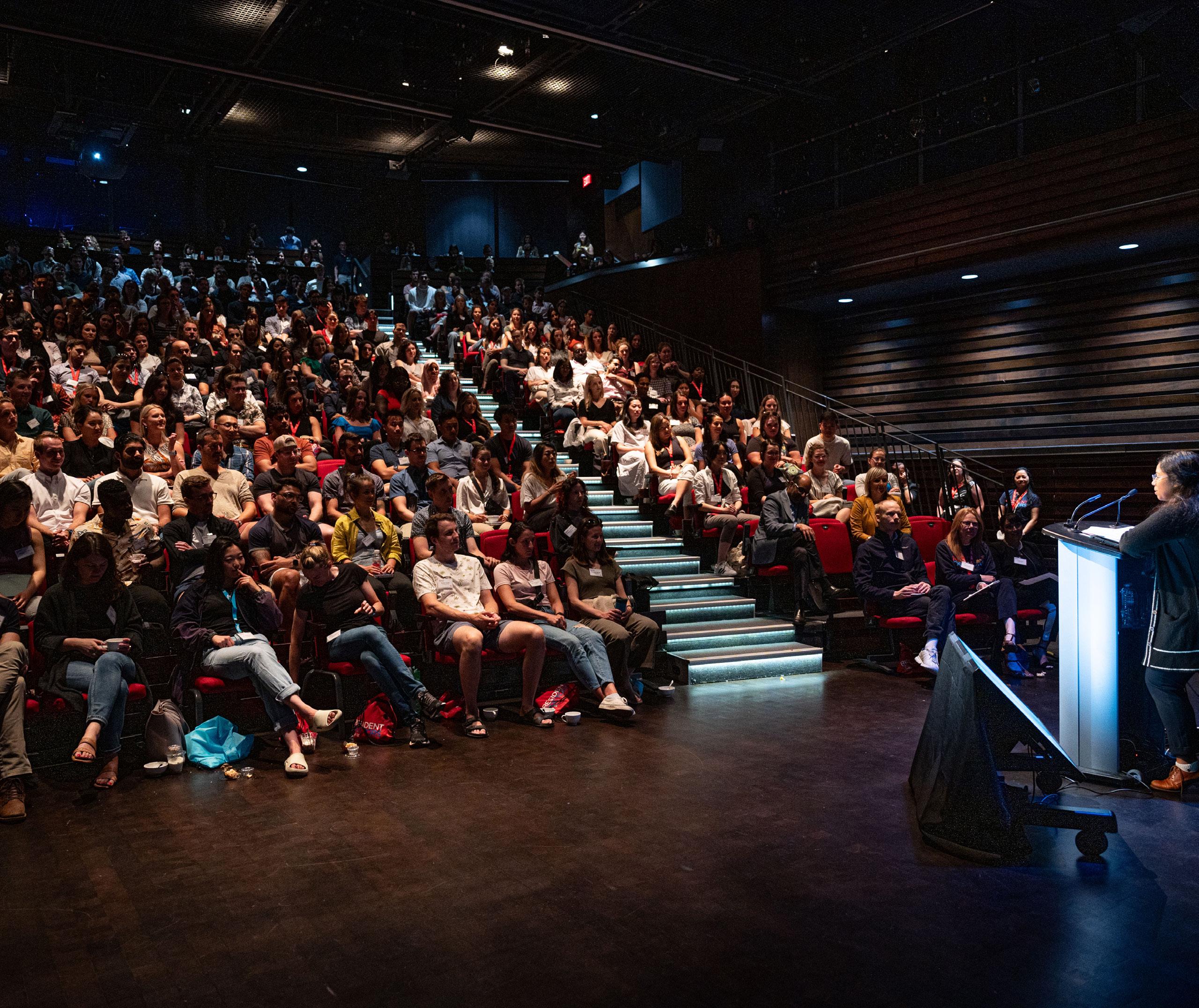

PU SE In the Residents’ Corner INSIDE THIS ISSUE 7-10 Resident Spotlight: Dr. Nicole Jedrzejko 13-15 OH&S for Resident Physicians 25 Distributed Site: Prince George July 2023 | Issue 51
The purpose of Resident Doctors of BC is to support residents in fulfilling their education to become well-informed, prepared and professional physicians to enhance patient care.
MISSION STATEMENT
• To advocate for contractual matters
• To support members’ education and encourage excellence in the teaching environment
• To promote its members’ professional, personal and financial well-being
• To foster collegiality among its members throughout British Columbia
• To facilitate collaboration with the community and other professional groups
CONTACT US
Phone 604-876-7636 | 1-888-877-2722
Email info@residentdoctorsbc.ca
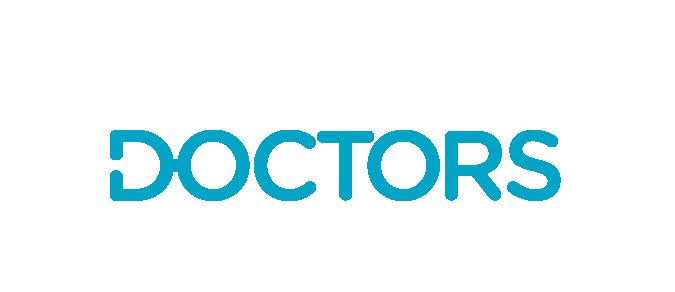
Facebook Resident Doctors of BC
Twitter @ResidentDocsBC
Instagram @ResidentDocsBC
350 - 1665 West Broadway Vancouver, BC V6J 1X1
11 Finances:
Finances,
Financial Health and Well-being 13 Occupational Health & Safety for Resident Physicians 17 Special Offers and Deadlines - Doctors of BC 25 Distributed Site: Prince George
CONTENTS 2 A Word From the RDBC President 5 May Resident Wellness Month Recap 7 Resident Spotlight: Dr. Nicole Jedrzejko
Healthy
Healthy you: 3 Habits to improve a Resident Doctor’s
It is an honour to be writing to you as the President of RDBC from the traditional territories of the Haudenosaunee Confederacy and the Anishinabek Nations.
It’s been a year of many new beginnings. Since the last time I wrote to you, we have successfully negotiated a new Collective Agreement with over 99% of residents voting in favour, settled several grievances cases with the Employer (HPV vaccine coverage for five residency programs and a stipend for preemployment training), and began the exploration process for several new initiatives including centralized call scheduling software, a resident health benefit trust, improved resident OH&S and a call scheduling committee. My hope is that these initiatives will bear fruit in the coming years with greater scheduling accountability, more affordable and wide-ranging health benefits, and improved safety for residents in the workplace.
As president this year, my goals were to be transparent and accountable during the process of negotiations, and to advocate for residents in all capacities and circles I have access to. A specific accomplishment I am proud of is helping to establish the first annual VCH Resident Recognition Awards in association with the Vancouver Physician Staff Association. It is one of the first such awards across the country which encourages Program Directors, VCH staff members, and Allied Health to nominate residents for their skills and contributions as clinicians in the workplace. This is a role that I feel residents, with our multiple hats as scholars, learners, and teachers, do not receive enough acknowledgment for: we are experts in our workplaces and crucial contributors to patient care. Over a dozen residents were nominated and recognized during a dedicated awards night for residents. While this model is currently VGH-centric, I am hopeful it will spread across the province as residents are appreciated more for our role in our challenged healthcare ecosystem.
Looking at the year ahead, the Board of Directors will be welcoming 9 new board members, more than half of the size of our board. The vision of these new members- of which you are welcome to be a part- will be essential in crafting our new Strategic Plan, which will guide RDBC priorities for the next 5 years. While our union’s work may not always be upfront and visible, having been involved first as an IM representative on the Council of Program Representatives, then the Director of External and Labour Relations, and finally the President of RDBC, I have come to appreciate the vital importance of our office in every aspect of resident life. From ensuring we are given a fair hearing in receiving call stipends from the employer to advocating for increased workplace safety, hosting wellness events, negotiating better terms for our Collective Agreement, and discussing a wide range of topics with the PGME, the work of our Board, staff members, and committee members is never done. If you have ever had any complaints about residency (and who hasn’t?), my encouragement to you is get involved!
As my time as president of RDBC comes to a close, I would like to express my deepest

A WORD FROM OUR PRESIDENT A WORD FROM OUR PRESIDENT 2
appreciation to each and every one of you for your trust, guidance, and camaraderie. Though the nights are long, the work grueling, and the moments of joy often appearing far, far away, residents always show up to return that page, see the consult and tirelessly work to improve the wellbeing of all British Columbians. You inspire me. I would like to extend my gratitude to the hard-working staff at RDBC for uncomplainingly answering our pages and learning the ins-and-outs of residency to advocate on our behalf. I could not have asked for a better team. It has been a true privilege to serve and support you during my term as President, and I look forward to continuing to serve you over the next year as RDBC Board Chair and Immediate Past President at Resident Doctors of Canada.
Yours Sincerely,
UPCOMING EVENTS
Dr. Soma Dalai, PGY-4 Infectious Diseases President, RDBC
UPCOMING EVENTS
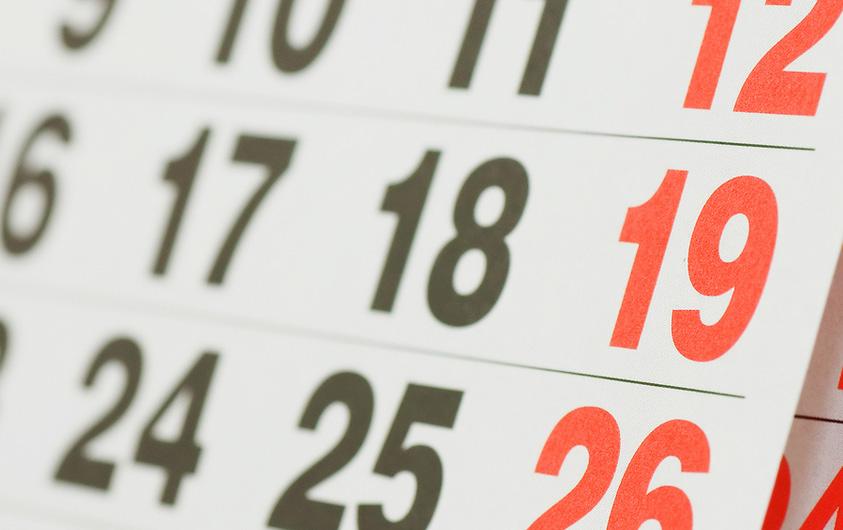
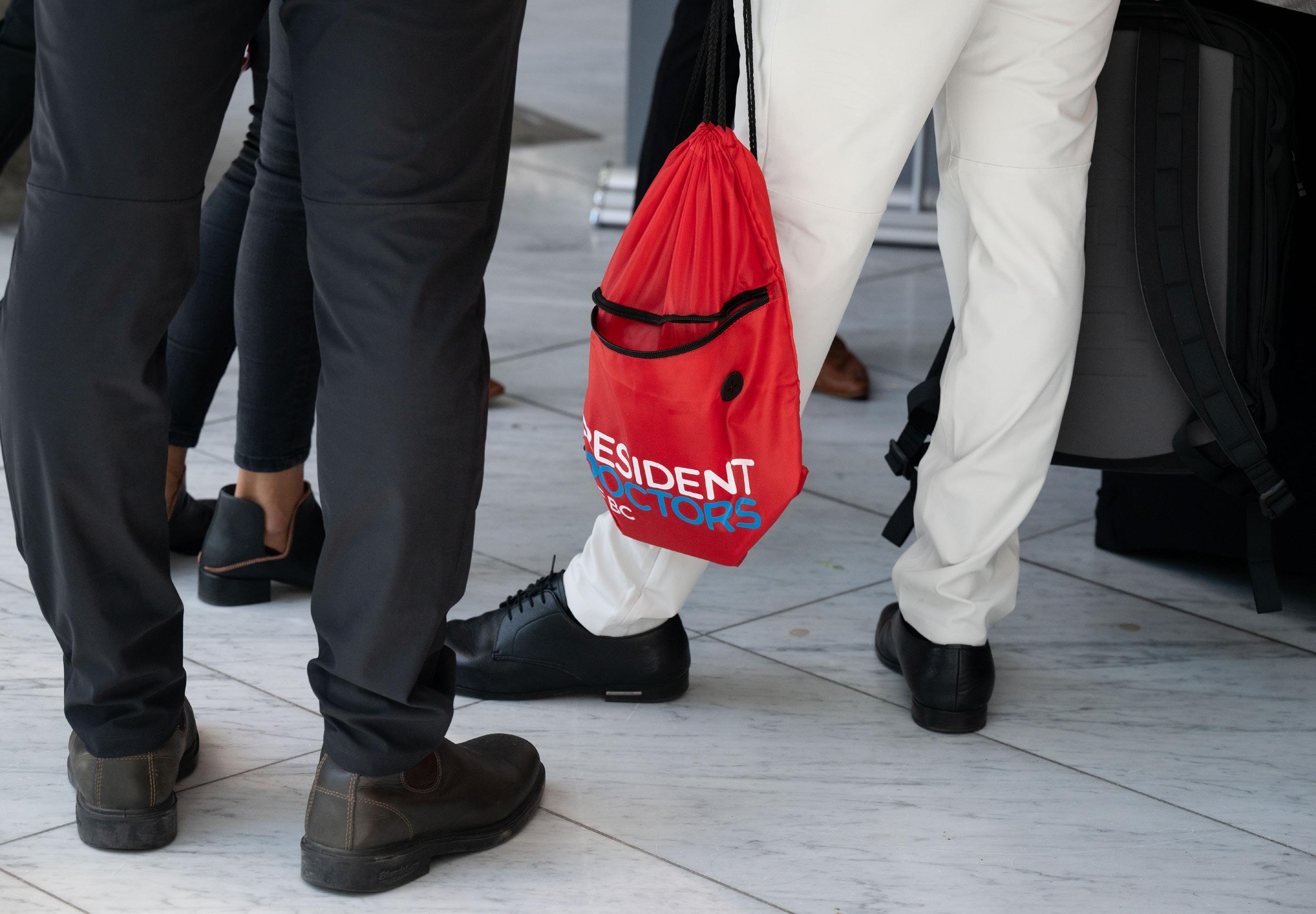
July 19
Kelowna Site Visit
July 26
Penticton Site Visit
July 27
Board of Directors Meeting
3
Plan Your Own Social
Resident Doctors of BC wants to help you and your residency program plan a social event. We will sponsor up to $750 (up to $1,700 if two programs collaborate) towards your program social event.
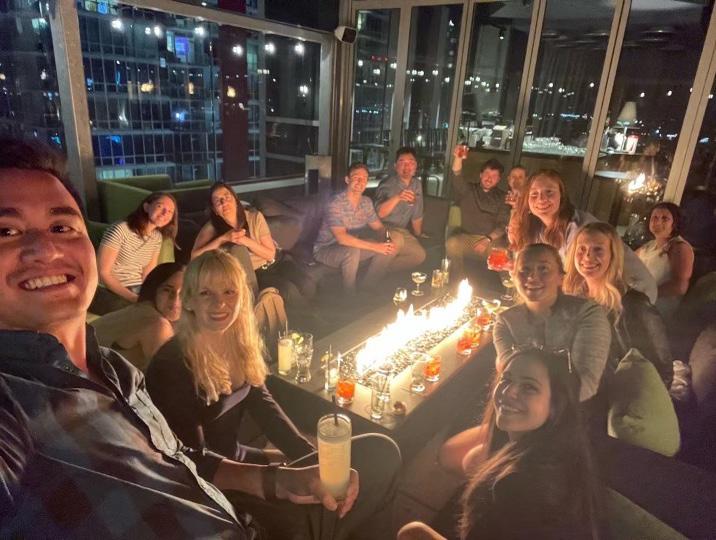
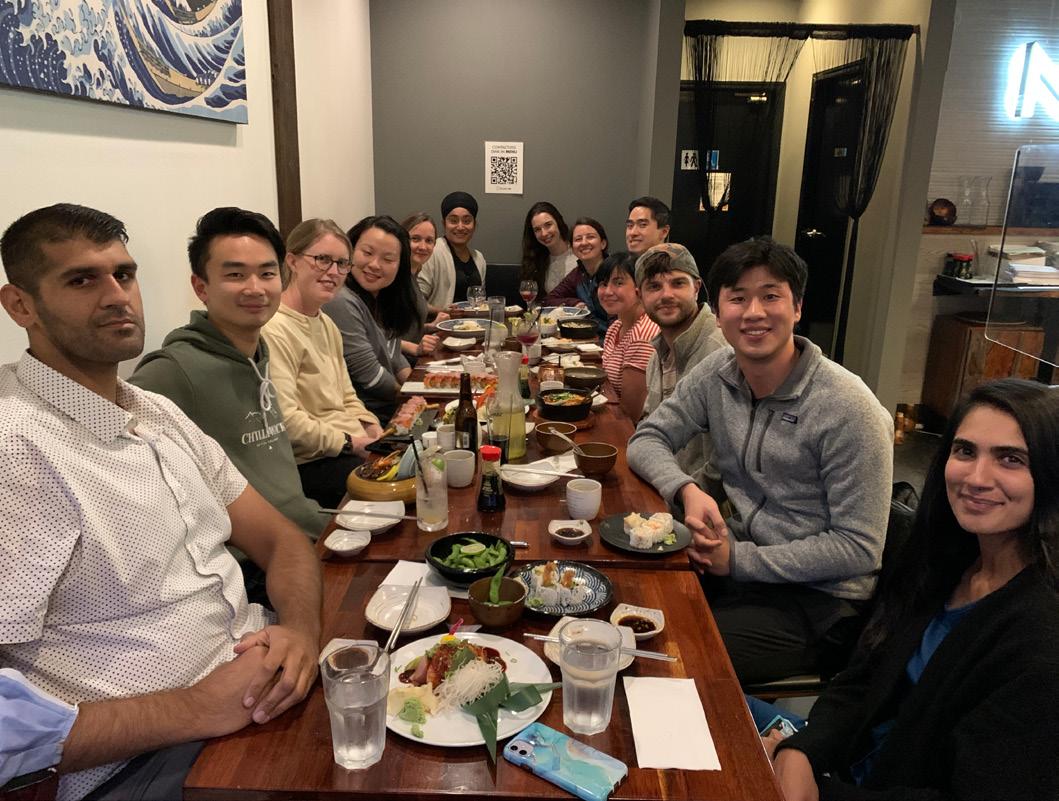
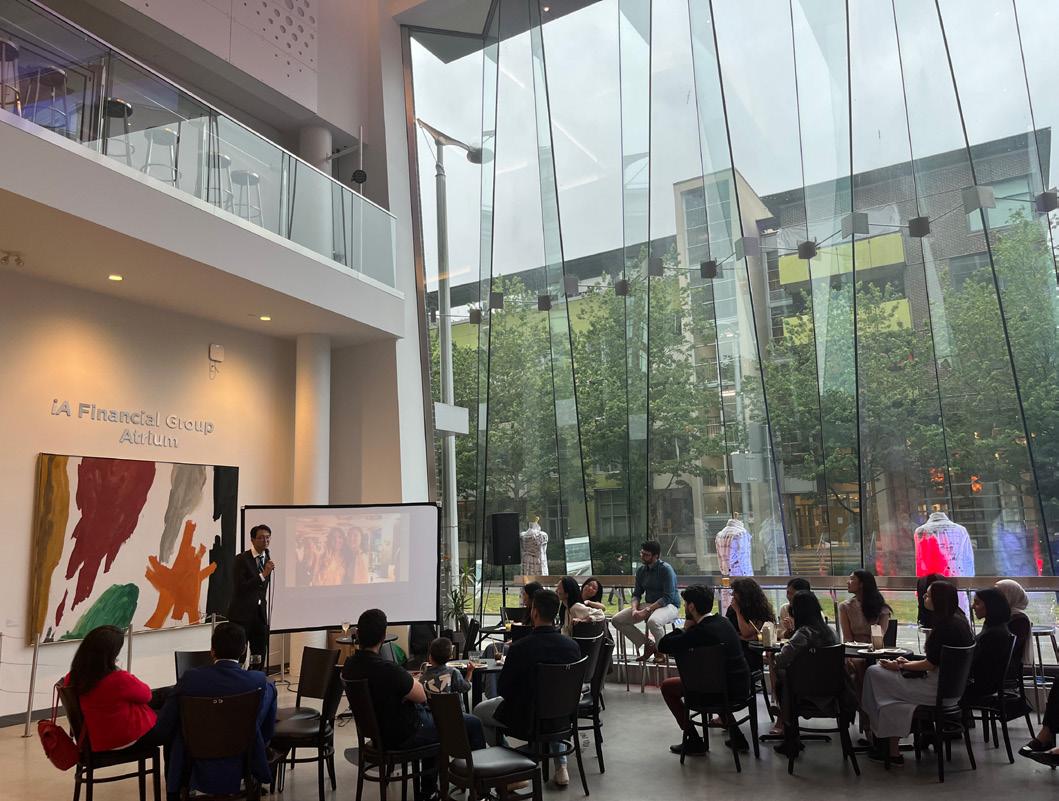
Interested? Visit our website and look under “Initiatives”!

4
MAY RESIDENT WELLNESS MONTH RECAP

Thank you to all our residents who participated in this year’s Resident Wellness Month. This year, we utilized both virtual and in-person events as well as four weeks of online contests to bring at least one event and a contest every week. We are happy to have been able to deliver a mix of activities which gave all our residents across the province a chance to participate.
If you have any feedback you would like to share and have us take into account for any future, virtual events as necessary, we’d love to hear it. Please send an email to info@ residentdoctorsbc.ca.
Our day-to-day work behind the scenes to improve resident wellness at the core of residency continues. We hope everyone had the chance to participate in something this month that helped to ensure their personal wellness, whether it was trying a new fitness activity, or attending one of our events such as the virtual Cooking Class. We had a great time hosting the events and seeing all the photos submitted for our weekly themed contests, and we hope you had a great time, too.
We already can’t wait to have you join us for the next Resident Wellness Month!
5

6
JUNE, 2023
Dr. Nicole Jedrzejko, PGY-5, General Surgery
Could you briefly introduce yourself and tell me a little bit about your background?
Hello! I grew up in Orangeville, Ontario, a town of ~30,000 people. My parents both immigrated to Canada in the early 1990s, my mother from Somalia and my father from Poland, and they greatly valued education and community. I grew up obsessed with school and the opportunities hard work within it gave this weird little mixed kid with a bad haircut. Most of my childhood was spent reading in the public library, singing in choirs, and annoying my two younger siblings while my father drove trucks and my mother ran a daycare. I credit my hard-working parents and their million sacrifices for my desire to serve the community through medicine, though funding postsecondary education was difficult. I ended up fashion modelling throughout high school to help with tuition and split my time between Toronto, Montreal, New York City, and Sydney during a year off after high school. However, Hamilton became the first city I felt at home after arriving at McMaster University, where I became the first in my family to receive a degree! A BHSc (Honours) and MD later, my sights were set on surgery.
What led you to pursue a career in General Surgery, and what do you find the most rewarding about the field?

Before medical school, the only doctor I knew personally was my own family doctor, thus I was never privy to the lifestyle and scopes of practice throughout medical subspecialties. My medical school
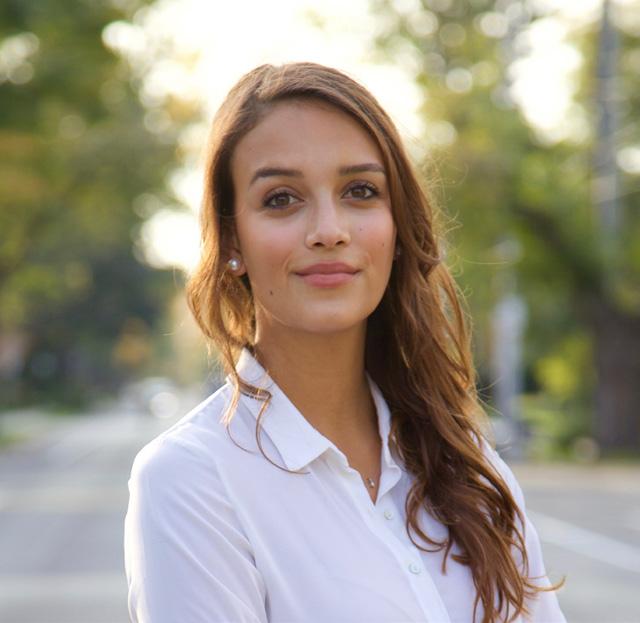
experience was shaped by McMaster’s Niagara Regional Campus, a site with 28 students per year and very few residents. We were placed on rotations directly with staff throughout community hospitals in the region, and the surgeons were incredibly welcoming. First assisting, morning rounds, and reviewing consults as a fresh medical student bolstered my independence and interest in general surgery’s unique charm as a humanity equalizer. The combination of teamwork, broad anatomical/pathophysiological scope of knowledge, and mastery of performance pressure made the OR the most fascinating place.
DR.
General surgery has diverse opportunities for subspecializing (we cover acute care, bariatrics, breast, colorectal, endocrine, endoscopy, hepatopancreaticobiliary, minimally invasive, pediatric, trauma, transplant, oncology, vascular, upper GI/foregut, and thoracic surgical subspecialties), but I was always more attracted to its breadth over depth of practice. UBC’s residency program is one of Canada’s rare balances of tertiary-level
7 RESIDENT SPOTLIGHT
MEAGAN MCKEEN
subspecialty and community-based general surgery service coverage and education. I aspire to be the jane-of-all-trades community general surgeon who can support patients in less-resourced areas, both nationally and internationally.
What brings you to pursue a master’s outside of Canada?
Since my undergrad days, I’ve been interested in global health, especially understanding how health systems strive for equity in health outcomes with patients from vastly different socioeconomic, cultural, and regional demographics. Bridging the intense clinical training of a surgical residency with skills in research methodology, statistics, and critical appraisal was the logical next step to contribute sustainably to global surgical research. I had a childish dream to study in Oxford ever since visiting the campus on a high school trip, never thinking it would be possible. My program directors, Dr. Ahmer Karimuddin and Dr. Tracy Scott, along with my mentors Dr. Emilie Joos and Dr. Andrea MacNeill made it possible to pursue graduate study during residency. I was drawn to Oxford’s MSc in Global Health Science and Epidemiology, a small program that specializes in non-communicable diseases and big data statistics. Over half of my classmates are physicians from all around the world (others are engineers, geographers, public health specialists, and more); I am one of three surgical trainees and one of three Canadians. The program is over two-thirds done now and it’s been intense!
How has your experience as a Global Health Science & Epidemiology student influenced your approach to General Surgery?
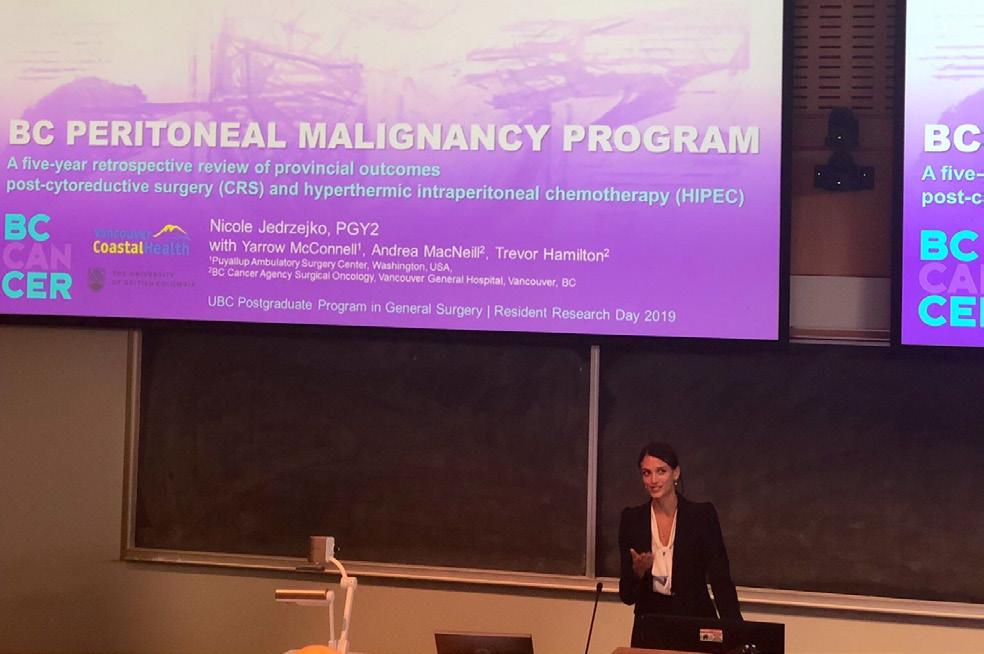
Our first two terms of study were focused on principles of epidemiology, statistics, and global health topics (from communicable and non-communicable diseases to health economics). I am now applying that content knowledge to my dissertation
that content knowledge to my dissertation examining patterns in breast cancer surgical approach in the UK Million Women Study. The opportunity to collaborate with world-class epidemiologists, statisticians, and clinicians in a nationally representative cohort study has immensely inspired what I think is possible back home in Canada and in low-resourced settings around the world.
So much of surgical research is singlecenter observational studies, but to better understand disparities in surgical care across regions and borders, we need to collaborate with health systems strategists beyond our field to build larger, comprehensive databases and better disseminate research findings with the public and leadership. I had a little practice as a junior resident building BC’s cytoreductive surgery and hyperthermic intraperitoneal chemotherapy (CRS/HIPEC) patient outcome dataset for the BC Peritoneal Malignancy Program, but I’ve learned so much more about how to make patient databases more powerful and practical.
I’m inspired by my new colleagues to integrate research and leadership into my career aspirations in general surgery on behalf of patients and communities who deserve better representation in data.
Continued on next page
8
On a more personal note, taking time out of clinical training to learn something different has been a godsend for my mental health. Residency, especially in surgical specialties, can be grueling and all-encompassing. Becoming a student again has given me perspective and context for what I loved about Gen Surg in the beginning. I really needed that after two hard years of senior residency during COVID-19.
Congratulations on the birth of your baby! How do you juggle parenting and residency?
Thank you! Shoutout to all the resident parents out there! I thought I knew tired before becoming a mom, but I had no idea. As a junior resident, I watched many seniors start their families and “balance” them with residency, and I had so much respect for their confidence and courage. My program directors have been strong advocates for families throughout my residency; every rotation I did while pregnant followed all RDBC rules and found ways to support my learning and health throughout. My daughter was born at the start of my PGY5 year, and after a year of maternity leave and a year in my MSc, I’ll be starting resident-parent life soon.
my anxieties about work, school, life, etc. If my little one is okay, everything else feels a little more manageable. Still, it’s important to remember to put on your own oxygen mask before placing one on the person next to you: self-care is necessary to care for others. Every resident needs that reminder. Finally, I owe everything to my superstar husband who has been an ultimate supporter of my career and the best dad you could imagine.
I have no words of advice that haven’t already been said. Being a parent is the hardest and most rewarding responsibility of my life, but what was unexpected was how much becoming a mom helped with
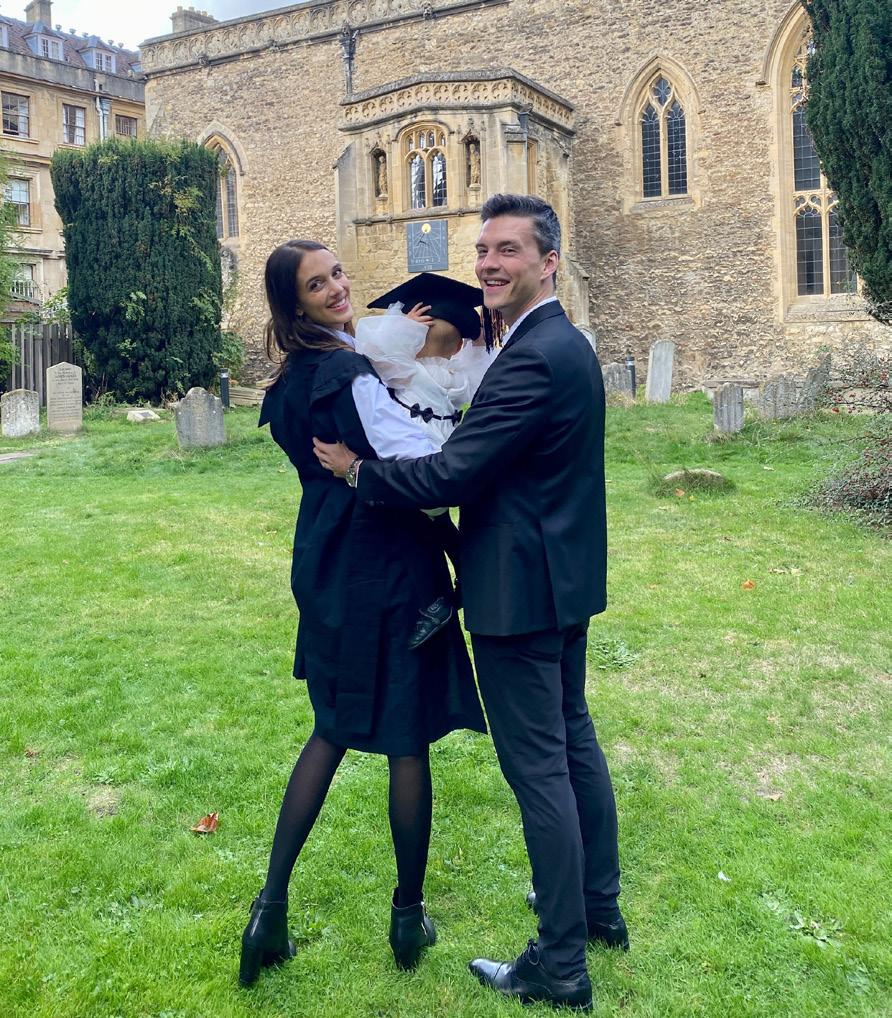
What advice would you give to other resident physicians who are planning to start a family or are currently pregnant?
Family planning can be a misnomer; everything from fertility challenges to scheduling conflicts can make starting families an unpredictable process. Be honest with your partner/support team throughout the journey and keep them close. Your program directors are supposed to be your allies, so make sure they are in the loop on your plans as much as you feel comfortable (I am very privileged to have found great support in UBC Gen Surg; not every resident has this relationship with their program). Keep up-to-date with RDBC Collective
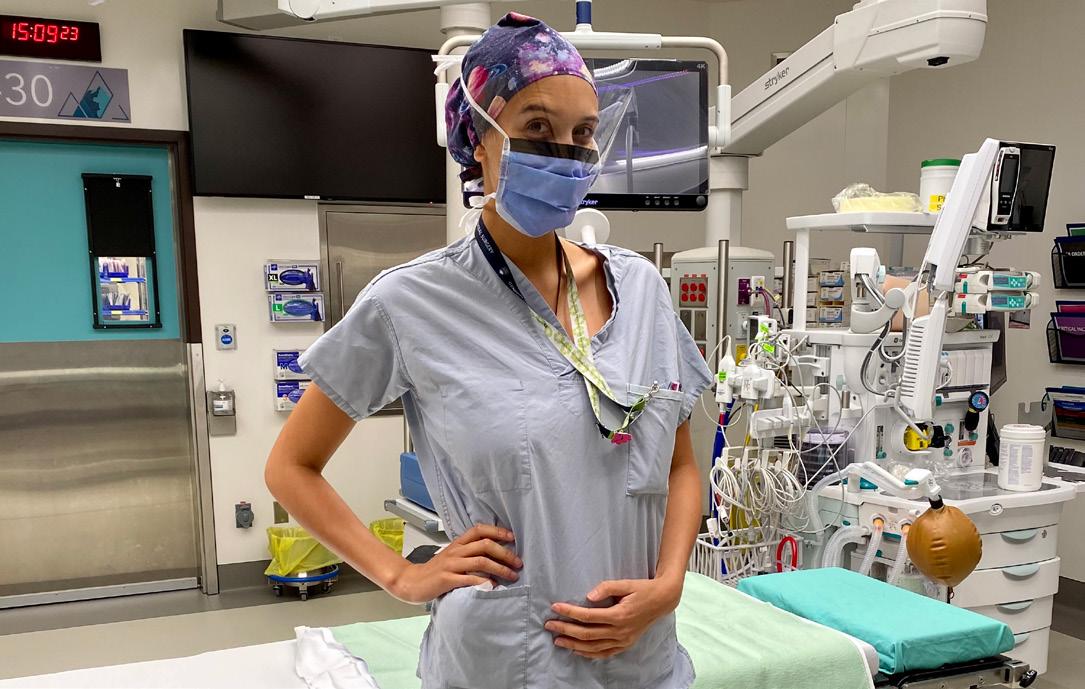
9
Agreement policies on maternity/parental/ adoption leave and workload in pregnancy, because you are your loudest advocate on rotations that intersect with family planning. Your health is paramount, especially now. Finally, a wise mentor of mine once described work as a liquid that will fill any container you give it. Don’t let it spill into the precious moments with your family that you deserve to enjoy. Invest in quality Tupperware.
Are there any notable advancements or breakthroughs in cancer care epidemiology that you find particularly exciting or promising?
Cancer epidemiology, like many health research fields are booming with technological advances, international collaboration, and public interest, but there are many relatively simple questions still unanswered. The use of large-scale prospective cohort studies with the capacity for biological specimen sampling will likely provide the strongest evidence for insight into the strength, shape, and trend of many cancers’ associations with multiple common exposures (e.g., environmental, dietary, sociodemographic, and genetic risk factors). For those interested, check out publications from the UK Million Women Study, European Prospective Investigation into Cancer and Nutrition (EPIC), and the China Kadoorie Biobank.
Though we may never find a modifiable risk factor with such a strong association as tobacco smoking and lung cancer (fun fact: this link was found in the large cohort study called the British Doctors Study which began in 1951 in Oxford), these large studies are providing robust evidence for clinicians and public health systems on cancer prevention, screening, and treatment strategies. I’m particularly interested in how COVID-19’s interruptions to regular screening programs affect breast, cervical, and bowel malignancy presentations and health system resource use, the rising incidence of early-onset colorectal cancer, and improving access to
breast cancer screening/treatment programs in low/middle-income countries. Cancer epidemiology is a meticulous field of study, where flashy findings are heavily critiqued, and effects may take decades and millions of participants to best measure and describe. Regardless, I’ve been so inspired by my colleagues’ dedication to the highest quality study design and analysis. Our population’s health depends on it.
Do you plan to stay in Oxford after residency? Any future projects you will be working on after residency?
Oxford has been absolutely lovely, but I’m looking forward to being home again. I cannot yet confirm my staff position, but I am hoping to decide on a community hospital with academic opportunities to mentor medical students and residents while still maintaining the breadth of general surgery I love. The first couple years of staff life will be focused on finding the elusive balance of clinic/endoscopy/OR time, call coverage, and being a good partner and mother. But I hope to apply my MSc in building a prospective regional surgical outcomes dataset to better target health policies to the Canadians we serve. My lifetime career dream would be to honour my family’s legacy and return to my mother’s homeland of Somalia to work with an organization like Médecins Sans Frontières with a knowledge base and ethical framework to contribute meaningfully to international surgical collaboratives. And somewhere, write a children’s book. Stay tuned!
Interested in reading more Resident Spotlights? Visit our website.
10
HEALTHY FINANCES, HEALTHY YOU: 3 HABITS TO IMPROVE A RESIDENT DOCTOR’S FINANCIAL HEALTH AND WELL-BEING
Alphil Guilaran, Executive Director, Financial Literacy Counsel Inc.
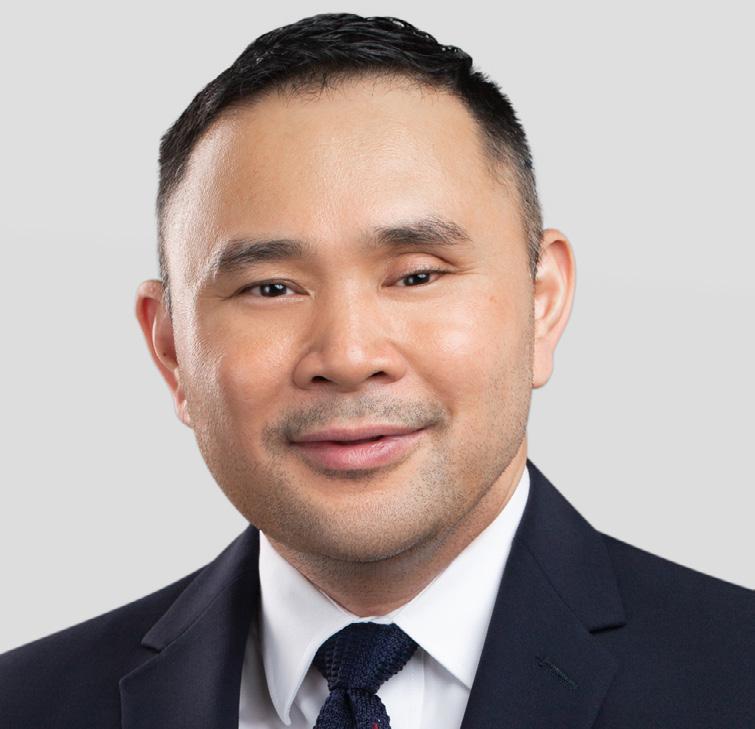
The journey of completing residency demands immense dedication and the development of clinical skills, habits, and disciplines to achieve better patient outcomes. Interestingly, a parallel can be drawn when it comes to cultivating the financial skills and habits that lead to personal financial success.
Whether you are in residency or transitioning into practice, the following money management habits will not only enhance your financial well-being but also help you achieve your financial goals sooner.
Habit #1: Turn uncertainty into a financial plan.
A comprehensive financial plan will help you navigate life’s uncertainties. It is never too early or too late to create a personalized financial plan, especially as your needs evolve throughout your medical career. Whether your goal is to pay off debt, reduce taxes, save for the future, or buy real estate, a financial plan will provide you with a roadmap to reach your goals.
In residency, you can begin the process of financial planning by meeting with a financial planner and getting to know accountants,
lawyers, and bankers who understand the opportunities and challenges of being a doctor. By investing time in finding and meeting with these experts, you can take control of your finances and establish a solid financial foundation that sets you up for success in practice.
Habit #2: Take care of your most important financial asset: You.
With compassion fatigue, increased workloads, and physician burnout on the rise, it is essential to acknowledge the challenges that lie ahead. This can include prolonged sickness, illness, or a disability that can inhibit all the clinical training you have acquired over the years. Unfortunately, life-threatening illnesses and unforeseen accidents can affect anyone, emphasizing the importance of regularly assessing your insurance requirements and coverage.
Whether it is extended health insurance, life, disability, or critical illness insurance through your association and/or private plan, reach out to your insurance advisor as a regular part of your yearly financial review.
Habit #3: Find a financial coach and meet with them at least once a year.
Have you ever wondered why professional athletes and Olympians hire personal coaches? Coaches provide guidance, motivation, and help them overcome obstacles towards reaching their goals. For the same reason a professional athlete
11 FINANCES
or Olympian hires a performance coach, the role of a financial coach extends beyond mere guidance; they offer motivation and strategies towards achieving your financial and life goals.
As a physician in training, you will face significant life and financial decisions as you transition into practice. An experienced coach can assist you in making informed choices. As an RDBC member, you have access to benefits such as the UBC Resident Wellness Office and two financial coaching sessions per year through Financial Literacy Counsel (FLC).
These financial coaching sessions not only help you address your top concerns but also connect you with legal and tax specialists who understand your journey. Since 2003, FLC has been helping physicians in training organize their financial house, get their tax refunds sooner, and navigate the financial planning opportunities and challenges of the medical profession.
Our hope is that you take the three money management habits shared in this article to heart. These habits will help you establish the necessary best practices to improve your financial health and overall well-being, not only during residency but also throughout your career in practice.
Remember help is around the corner. Your RDBC member benefits include two financial coaching sessions with an FLC Financial Coach every year you are in residency.
Please feel free to reach out to Financial Literacy Counsel to book a financial coaching session using our QR code below, online form or contact us at 604.620.6630 or contact@flci.ca.

ABOUT THE FINANCIAL LITERACY COUNSEL
Financial Literacy Counsel (FLC) is a boutique financial education and financial planning company committed to “building a financially literate world of stronger families and communities”. FLC began educating doctors in 2003 through the UBC Faculty of Medicine and was contracted in 2011 by VCH Employee Wellness to increase the financial literacy of resident doctors and healthcare professionals. Their programs are delivered through RDBC, UBC MBA, UBC CPD, BC Anesthesiologists’ Society, Chartered Professionals Accountants of BC (CPA-BC) and Continuing Legal Education Society of BC (CLE-BC). Learn more about FLC by visiting www.flci.ca
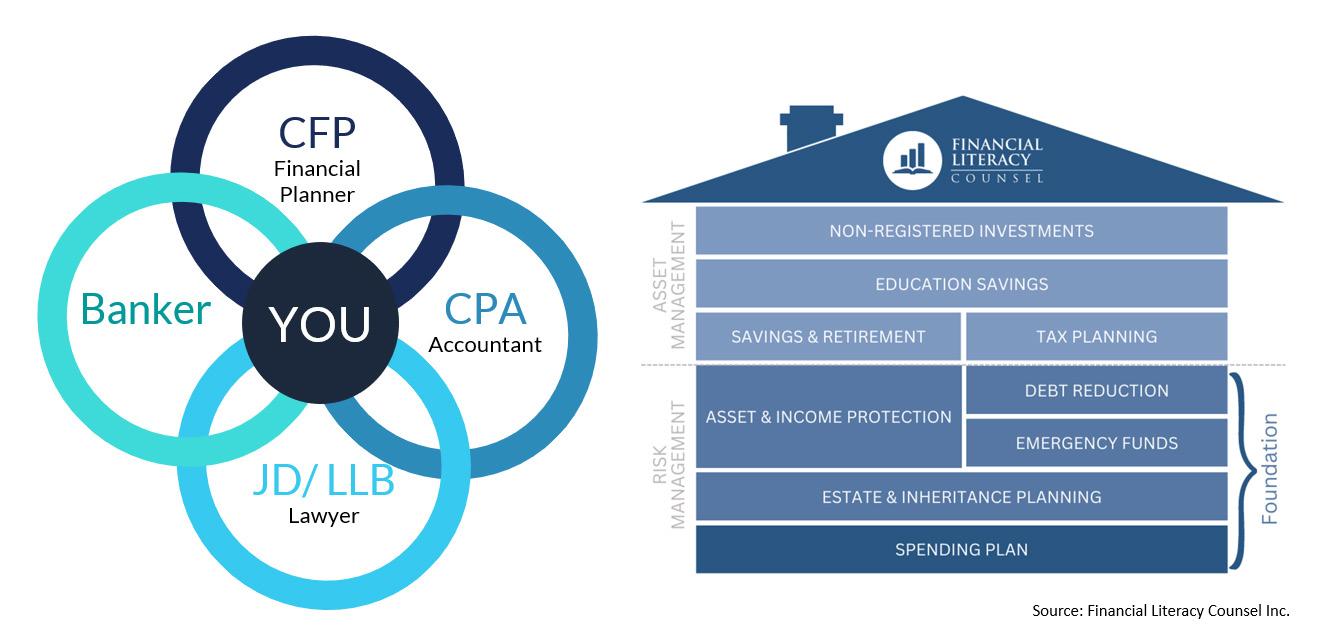
12
OCCUPATIONAL HEALTH AND SAFETY FOR RESIDENT PHYSICIANS
By Resident Doctors of BC
Let’s be clear: we know nobody goes through four years of medical school and two to five years of residency to learn all about the joys of Occupational Health and Safety (OH&S). And there are so many things to focus on during your residency: there are your clinical duties, calls, academic half days, exams, keeping track of paystubs and seemingly thousands of email addresses, starting families, buying houses, and that whispered rumour you heard someone’s friend’s aunt once had: work-life balance. Plus, it’s not like you work in an environment where you have to wear hard hats and safety boots, and that’s what Occupational Health and Safety is all about, right?
Well, not exactly. Occupational Health and Safety really means keeping the workplace safe for everyone who has to do work –any kind of work – in that space. A safe workplace is one where the employer and the employee take shared responsibility for working in an environment where everyone is protected from physical and psychological hazards, illness, or injury that are caused by that work environment. And although it is a shared responsibility, it’s important to remember that as employees, workplace safety is your right
So, what kind of safety “threats” are important for you, as resident physicians, to be aware of? Residents can be exposed to things like:
• Overexertion or injury from lifting and/ or repositioning patients
• Falls from slips and trips
• Violence from aggressive patients
• Exposure to radiation, harmful chemicals, or cytotoxic drugs
• Exposure to infectious diseases including (but not limited to) needlestick injuries
• Fatigue
• Psychological trauma
As important as your physical safety is, we also need to create psychologically safe workplaces. And although we know that as residents you are some of the most resilient folks out there, there are many factors which can take a heavy toll on your mental wellbeing.
Fatigue and burnout are words very familiar to residents. With everything you have going on over the next few years, it can seem that getting enough sleep, rest, and downtime is an impossible feat. We strongly recommend taking a moment to familiarize yourselves with the PGME Fatigue Risk Policy and Fatigue Risk Management Guide
Residents can also be exposed to significantly traumatic events as part of their regular duties. The services below are available to you throughout your residency. Much work has gone into reducing the stigma around psychological health and safety at work. Strides are currently being made to ensure there is a safe way for residents to report a mental health injury at work, and for this to be included within the Occupational Health and Safety framework.
Harassment, bullying, and discrimination in the workplace can also, unfortunately, rear its head from time to time. If you’re experiencing any of these circumstances, please do not stay silent on it. You can contact RDBC , UBC’s Resident Wellness Office, the PGME Office of Respectful Environments, Respectful Environments, Equity, Diversity & Inclusion or the Physician’s Health Program.
13 FEATURE
The following resources are in place to protect you and keep you physically and psychologically safe at work.
1. The Collective Agreement is designed to protect you from working too many consecutive hours without enough sleep and breaks, whilst balancing your academic needs and interests. Programs are ultimately responsible for keeping clinical duty and oncall schedules consistent with the Collective Agreement. If you feel your schedule does not support your workplace safety, it’s important to reach out to PGME, your program, or RDBC to assist you with this. The Collective Agreement:
• Limits the number of call shifts
• Requires post-call days and call rooms
• Mandates vacations and other leave
• Grants call-protected time to study for exams
• Grants 5 months sick leave
• Stipulates maternity and parental leave and regulations depending on health and wellbeing of birthing parent
• Mandates paid full day of training dedicated to OH&S Orientation including violence prevention
2. PGME Policies are in place to safeguard your wellbeing
3. Mental Health Resources
• UBC Wellness Centre
• VCH Employee Wellness
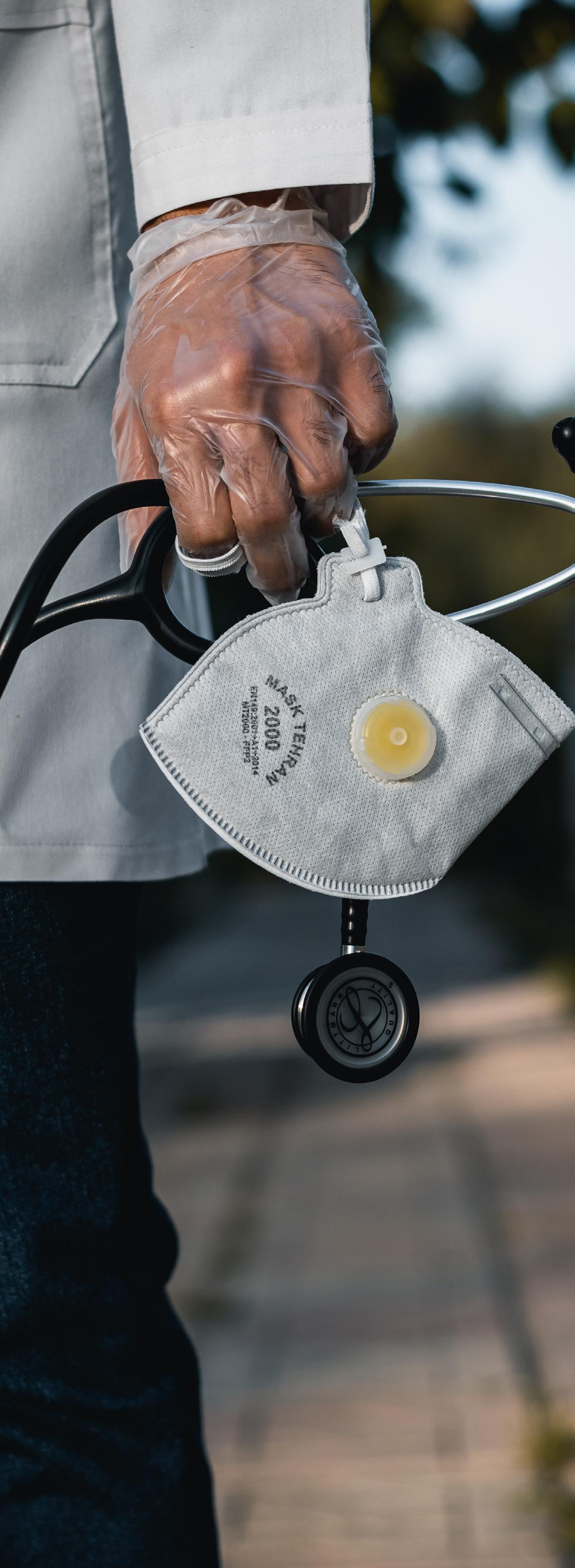
• Physician Health Program
4. RDBC represents you on various OH&S co mmittees and working groups. Including OH&S Society, RDBC and HEABC Safety Committee, Provincial Psychological Health and Safety working group run by MoH, VCH Psych Health and Safety committee
5. Provincial and Regional Workplace Resources
• Provincial Workplace Call Centre, WorkSafe BC, Health Authority OH&S Policies and Safety Advisors (contact RDBC for individual HA contacts if unsure)
14
These resources are there to serve and protect you. The best way we can all ensure that you are provided with the best assistance, when and how you need it, is to use them and actively engage with them. One of the most effective ways to do this is to report hazards, injuries, or illnesses through the Provincial Workplace Health Call Centre. Of course, first and foremost, reporting is about keeping yourselves safe and holding your workplace accountable for keeping you safe while you work.
You may also find that your preceptors and more senior physicians are unclear on Occupational Health and Safety needs and processes. Systems that have been around for decades for others in the industry have largely been overlooked for physicians and resident physicians until recently. Physicians spend so much time being care providers, that it’s sometimes easy to forget that you can be vulnerable to injury or illness too. In fact, if you Google “injured physician images” you will exclusively find images of doctors helping someone else with an injury. It’s time this culture changed, and by engaging with workplace safety now, you have the opportunity to become leaders and change agents for years to come, long after you have become senior physicians yourselves and are guiding new generations of residents.
If you experience anything at work that seems unsafe, such as a floor spill, an aggressive or even potentially aggressive patient, out of order panic buttons, needlestick injuries, blood splatters, formaldehyde smells, or a traumatic incident, this can and should be reported so that it can be resolved, and everyone can be kept safe. Hazards and near misses can generally be reported directly to a Safety Advisor at the Health Authority where you’re based at the time. Injuries and illnesses should be reported to the Workplace Call Centre so that they can be logged. This process is always treated confidentially.
We know that this is a lot to keep track of on top of everything else you need to prioritise. Don’t forget to check out the RDBC website, where you can find a ton of information on residency, including workplace safety. Resident Doctors of BC is able to provide guidance when it comes to who to contact, when, and how. In some cases, we may be able to advocate on an Occupational Health and Safety issue on your behalf. Reach out to us by phone or email any time if you have questions, comments, or concerns.
There are no unimportant questions, and remember, we love to hear from you and help you resolve problems – it’s why we’re here.

15
Below are some of the commonly asked questions we receive from incoming Residents at Orientation. As always, do not hesitate to reach out to info@residentdoctorsbc.ca if you have a specific question!
IS THERE A WAITING PERIOD FOR OUR EXTENDED HEALTH BENEFITS OR DO THEY START JULY 1ST?
Good question! Coverage begins 1 month after enrolment (August 1st, if you being Residency on July 1st). MSP coverage for residents who are new to BC can take up to three months due to a mandatory waiting period.
DOES THE NEW $500 HEALTH FUND COVER THINGS SUCH AS GYM MEMBERSHIP?
The new health spending account (Effective January 1, 2024) will not cover athletic or fitness club (gym) fees. The health spending account is available to claim unpaid balances or expenses on any item or service allowed under the Income Tax Act of Canada as a medical expense that is not covered under the existing plan.
IS COMPASSIONATE LEAVE ONLY FOR IF SOMEONE DIES OR DOES IT WORK WHEN A FAMILY MEMBER NEEDS CARE FOR A PERIOD OF TIME?
Compassionate leave can be used to take up to 3 days with pay in the event of death or serious illness of a Resident’s spouse, child, parent, sibling, grandparent, parent-in-law and legal guardian. For more details, please read Article 7 of the Collective Agreement.
IF YOU ARE A RESIDENT IN BC AND YOUR PARTNER IS A RESIDENT IN A DIFFERENT PROVINCE, CAN YOU STILL REQUEST VACATION TOGETHER?
Absolutely! Vacation requests should not be unreasonably withheld taking into consideration the operational and educational requirements of the Program.
CAN YOU PLEASE CLARIFY THE CMPA COVERAGE/REIMBURSEMENT BY RDOBC? THANK YOU!

Effective July 1, 2023, Residents will be reimbursed by the Employer for the cost of CMPA dues. The reimbursements are administered by UBC and included on resident’s monthly pay cheques.
IF A HOLIDAY FALLS ON THE SATURDAY OF YOUR VACATION WEEK (EG CANADA DAY THIS YEAR), DO YOU GET A LIEU DAY?
If a Statutory Holiday (full list here) falls on your regular time off or on your vacation, you are entitled to a lieu day. Residents who work on the Statutory Holiday (not observed stat holiday) will receive statutory pay and a day in lieu.
16
SPECIAL OFFERS AND DEADLINES
As you transition to practice, Doctors of BC highly recommends that you take the time to inform yourself of the time-sensitive offerings.
Special Insurance Offers available to Newto-Practice Physicians
1. BC Government-Paid Physicians’ Disability Insurance
Deadline: Apply within 90 days after completing residency, no medical questions if you have IncomeProtect™ for Residents though Doctors of BC. Otherwise, apply with proof of good health immediately.
As a negotiated benefit for physicians earning fee-for-service, sessional or service contract income in BC, this plan provides up to $6,100 of monthly tax-free benefits on the 1st day of hospitalization or the 15th day of a non-hospitalized disability due to accident or illness that prevents you from working.
2. Doctors of BC IncomeProtect™ for Practicing Physicians Disability Insurance
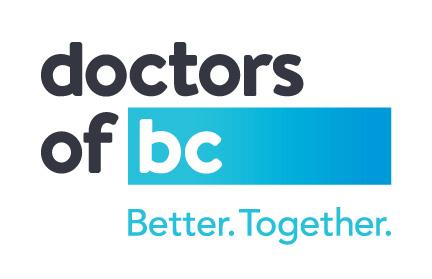
Deadline: Increase or alter coverage within 90 days after completing residency, no medical questions if you have Doctors of BC IncomeProtect™ for Residents. Otherwise you can apply with proof of good health.
If you are insured through IncomeProtect™ for Residents, you now have options to customize your plan by increasing your coverage and adding features without proof of health. If you have been relying solely on your employer-paid LTD during residency, now is the time to set up your own coverage!
3. Professional Expense Insurance Deadline: Apply within 90 days after completing residency, no medical questions. Otherwise you can apply with proof of good health.
Professional Expense insurance ensures that if you have business expenses that may continue in the event of a disability, you don’t have to use your personal disability benefits to pay for them.
4. Health & Dental
Deadline: 90 days after completing residency, no medical questions for you or your family and 50% premium discount in first 12 month of practice.
Your employer health and dental plan ends with residency. Doctors of BC Health & Dental plan provides 80% reimbursement for medical and dental costs for you and your family. Take advantage of the 50% reduced premiums for new-in-practice members.
5. Critical Illness Insurance
Deadline: 90 days after completing residency, no medical questions for $50,000 of coverage
Critical Illness insurance provides a tax-free lump sum amount if you’re diagnosed and survive one of 25 listed illnesses, including life threatening cancer, stroke, and heart attack. Critical illness insurance provides you the flexibility to pay for large expenses that your monthly disability payments may not cover, such as extra medical support, spousal unpaid caregiving leave, or debt reduction.
17
TRANSITION TO PRACTICE
Doctors of BC
6. Life Insurance
Deadline: Until end of residency - $100,000 with no medical questions
If you have yet to apply for $100,000 life coverage without medical questions, you can still do so as a resident. Speak with a Doctors of BC Advisor to review your life coverage needs for debt, mortgage and family income. You can apply for up to $5M of life coverage with proof of health. Doctors of BC offers some of the lowest insurance rates in the industry.

Doctors of BC Negotiated Benefits
The following provincially funded benefits have been negotiated for physicians practicing in BC. Applications and deadlines may apply.
• Canadian Medical Protective Association (CMPA) Rebate
• Partial refund of CMPA dues based on CMPA work code
• Continuing Medical Education (CME) funds
• Up to $2,200 to assist with the cost of obtaining CME credits.
• Contributory Professional Retirement Savings Plan (CPRSP)
• Up to $5,000 plus additional sum for length of service contributed to your RRSP or TFSA.
• Parental Leave Program (PLP) benefit
• Up to $1,000 a week, payable for up to 17 weeks during parental leave. Benefits are payable for parental, adoption and surrogate leave.
• Physicians’ Disability Insurance (PDI)
• Up to $6,100 of monthly tax-free payments if you’re unable to work due to accident or illness.
• Rural Education Action Plan (REAP)
• Available to physicians serving in a Rural Subsidiary Agreement (RSA) communities, this program supports training needs and provides opportunities to upgrade rural skills.
Resources to learn more:
Book an appointment with a noncommissioned Insurance Advisor: Scheduling Link
Email: insurance@doctorsofbc.ca
Call: 604-638-2904
* To qualify for PDI without proof of health you must have held at least $2000 of IncomeProtect™ for Residents for at least 12 months
18
MOMENTS OF ECSTASIS
 By Austin Lam, UBC Psychiatry Research Track PGY-2
By Austin Lam, UBC Psychiatry Research Track PGY-2
To be beside oneself
Fluttering puddles of fluctuating awareness
In unfastened ideal
Flowing mercurial coloured
Stream - of floating bodies
Gustave Doré and his imagining
Ceaseless movements
Captured by quicksand
Fluidity in body
Minefield of minds
Of Dante’s Inferno To capture a moment
Uncanny
Fleeting vision of Monument Valley
Of sensations un-sensed, and perceptions un-perceived.
Eyes piercing with
Kindness
Floating above
ichthyotic ground on which we wander
RESIDENT SUBMISSION
19
RESIDENT SPOTLIGHT
Resident Spotlight works to highlight the many different residents that make up our membership.
From topics on balancing parenting in residency, personal experiences in residency, to research tracks and own initiatives in the medial field, we hope to bring you a wide variety of interviews to offer a glimpse into residency life.
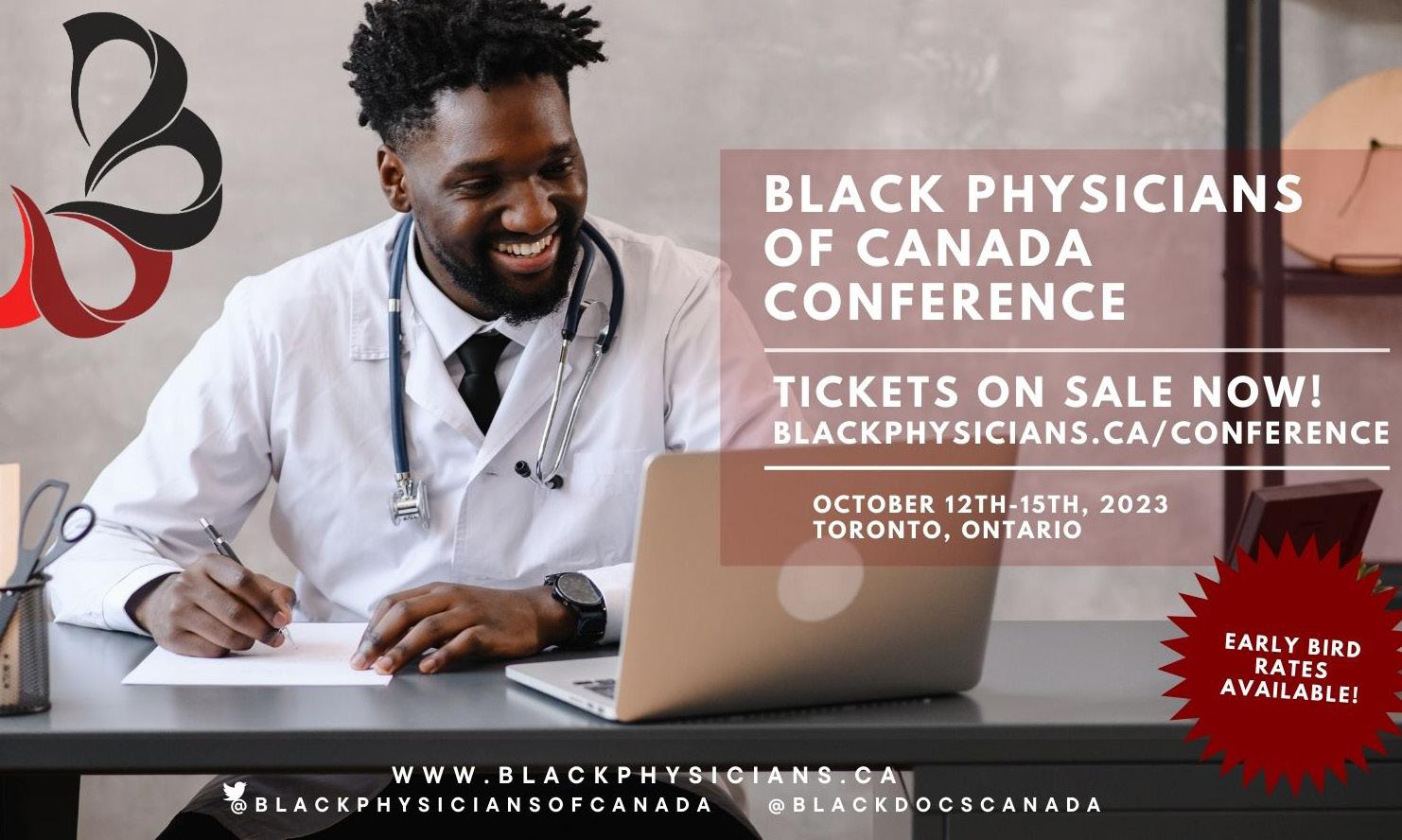
Interested in being interviewed? Contact diana@residentdoctorsbc.ca

20
Take part in the Providers Thriving Together Wellness Conversations Series
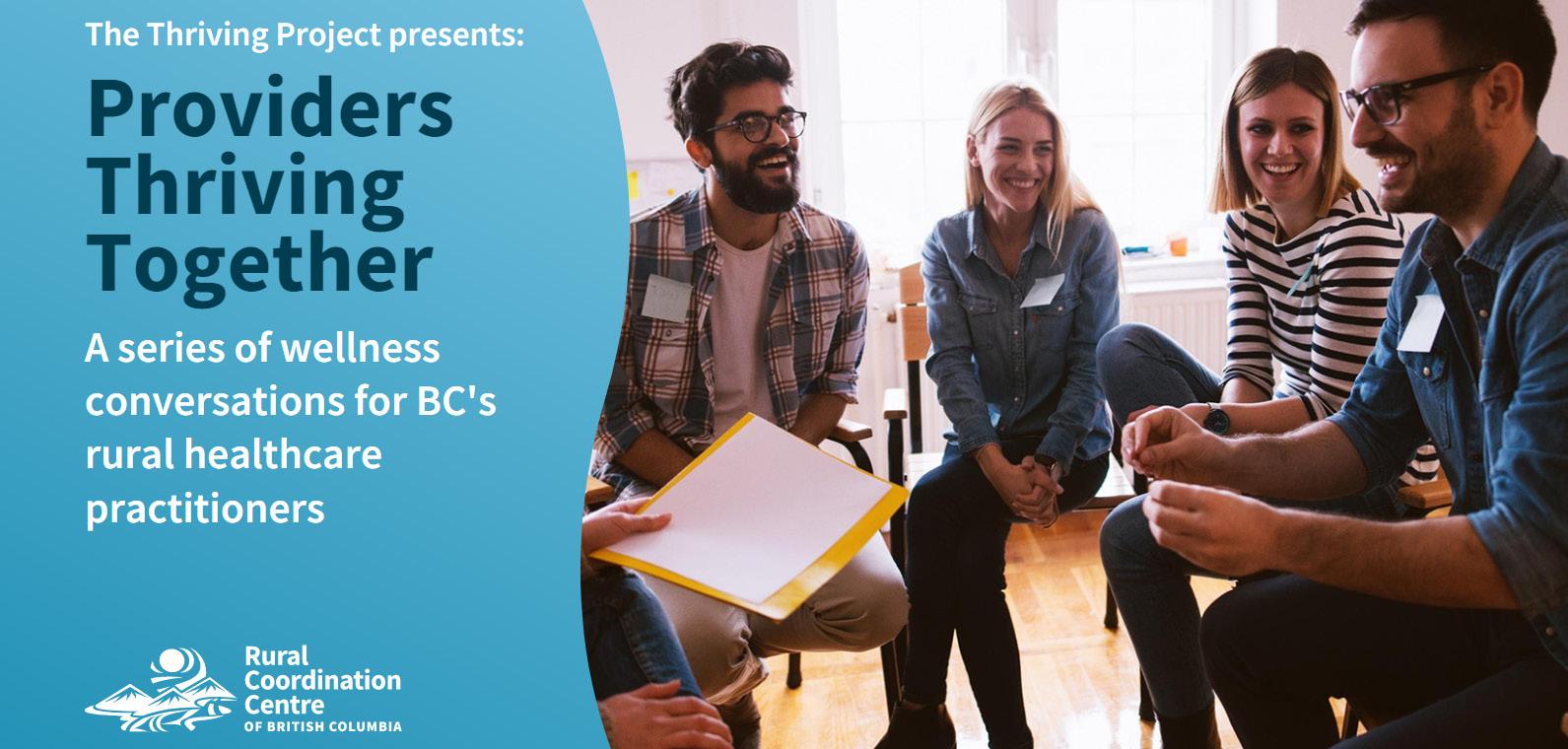
Providers Thriving Together Wellness Conversations Series, part of RCCbc’s Thriving Project, led by Dr. Tandi Wilkinson. These free monthly virtual dropin sessions offer a facilitated space for rural healthcare practitioners to connect and discuss wellness-related topics in the service of activating their collective resilience.
When and where:
All sessions occur on Zoom on the first Monday evening of each month from 7–8:30 pm. There is no expectation to attend all sessions—come to those that inspire you and work in your calendar.
Who can attend:
A health practitioner (Doctor, resident, nurse practitioner, midwife) serving a rural community in BC (as defined by the Doctors of BC RSA list).
Register:
Fill out the registration form to participate in any or all of the Providers Thriving Together sessions. We’ll send you a calendar invite, monthly reminders of session dates, and other information from the Thriving Project.
Would you like to present?
We’re looking for presenters in 2023. Please contact us at thrivingproject@rccbc. ca if you’re passionate about a wellness theme and would like to present it to your colleagues.
21 WELLNESS
Mindfulness in Medicine is a program that offers Mindfulness Based Stress Reduction (MBSR) sessions to rural providers (MD, NP, and midwives). In pausing together, providers can care for one another in ways that activate our personal and collective resilience, which is much needed during this time of great transition in healthcare, the planetary health crises, and deep calls for social justice. This participatory, trauma-sensitive course consists of eight weekly 2.5-hour classes and one day-long class on a Saturday.
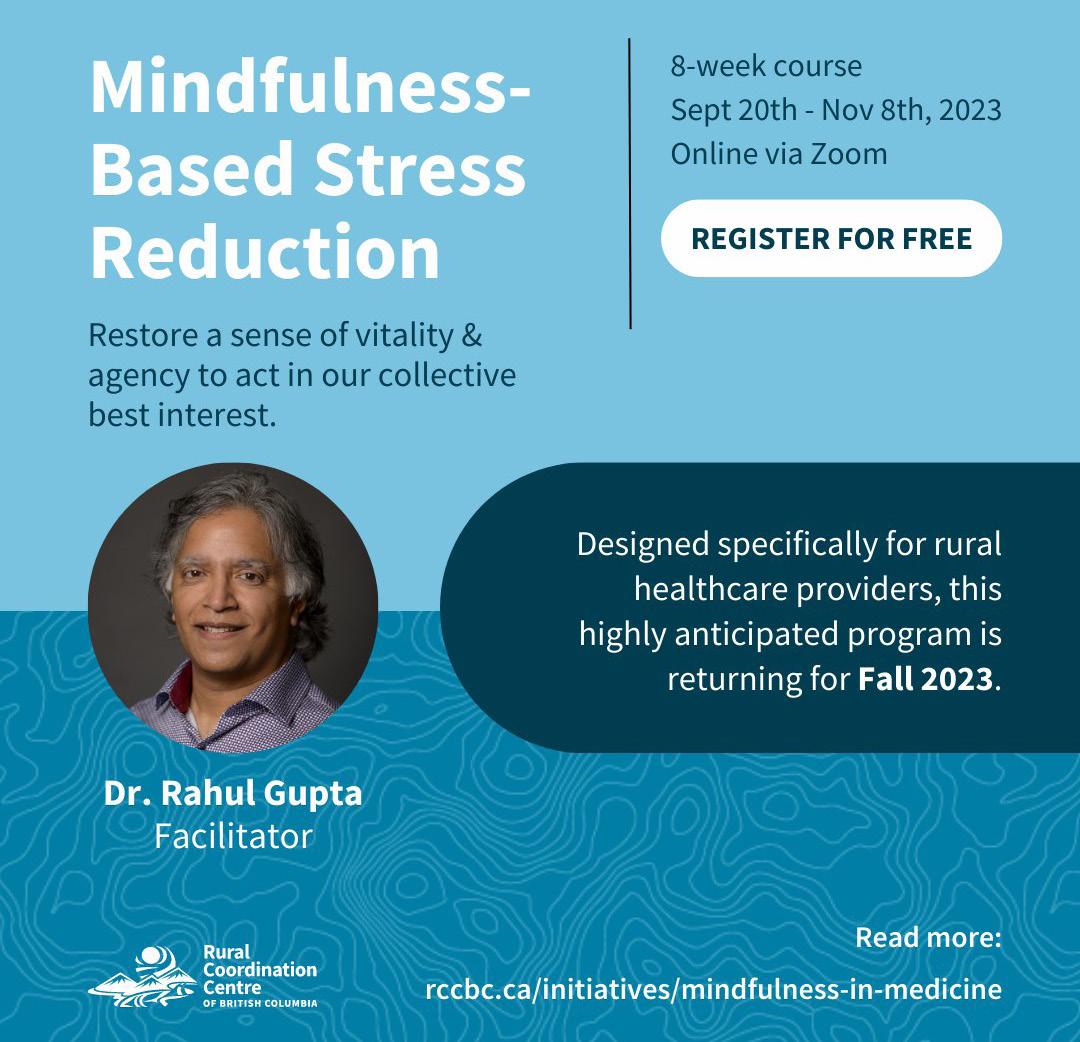
22
Resident Wellness Office
The UBC Resident Wellness Office is here to provide a variety of supports to all residents throughout residency including free and confidential counselling, workshops, group supports, and peer support. The RWO can provide support around stress, time management, communication, mood management (depression, anxiety, etc.), loss, or life transition.

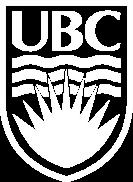
COUNSELLING SERVICES




The RWO offers 10 free, confidential counselling sessions to residents each academic year. Counselling can be either individual or as couples counselling for residents and their partners. RWO offers services both in person at Diamond Health Care Centre, Royal Columbian Hospital and Surrey Memorial Hospital or via Zoom for virtual services. Elder Support is now being provided by an Indigenous Elder for virtual and in person counselling and Elder teachings at DHCC. Indigenous residents will be prioritized.
WORKSHOPS
The following workshops are available according to the specific needs of the residents in your program:
• Resiliency in Adverse Events
• CBT Skills for Thriving through Residency
• Mindfulness Self Compassion in Residency

GROUP SUPPORTS
A variety of group supports are available to residents in all stages of their residency journey including:
• Wellness Rounds/Ice Cream Rounds
• Peer-Led Ice Cream Rounds
• Aim. Focus. Release: A Four Week Support Group for Residents on Leave
PEER SUPPORT
The Peer Support Program offers residents who experience an adverse event in the work environment an opportunity to talk to another Physician (Faculty or Senior Residents) for support in a confidential, nonjudgmental environment. If you’re unsure about how to seek Peer Support, reach out at resident.wellness@ubc.ca.

The UBC PGME
POST GRADUATE MEDICAL EDUCATION | RESIDENT WELLNESS OFFICE
resident.wellness@ubc.ca
Resident Wellness Office
Elder Support: Counselling & Elder Teachings
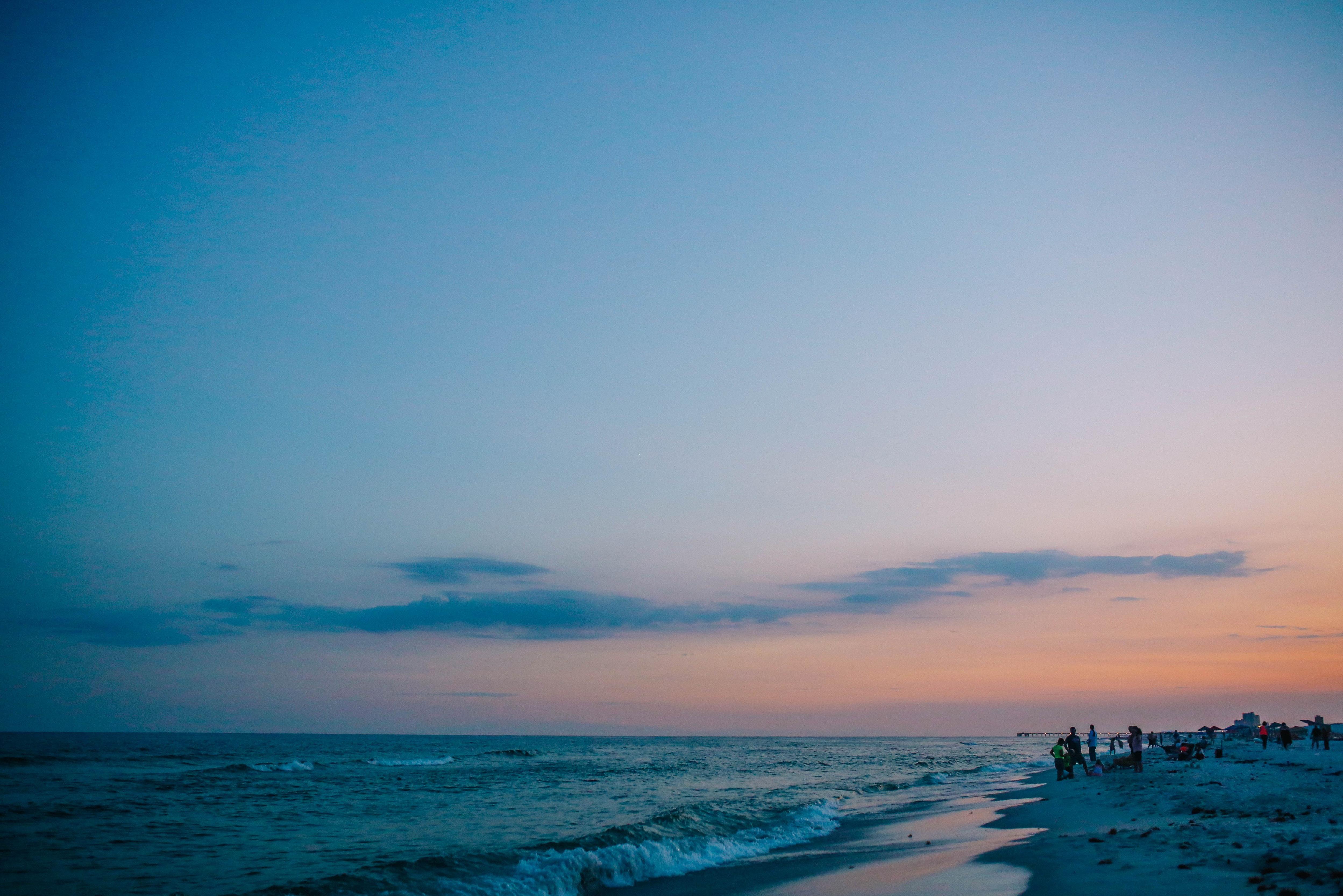
The RWO is now working in partnership with Elder Jean Wasegijig to offer Elder Support including Counselling sessions and Elder Teachings. Elder Jean is available on Mondays and Fridays both in person at Diamond Health Care Centre or virtually through Zoom. Elder Support is available to all residents with a priority to support the Indigenous Family Medicine Program and residents identifying as Indigenous.
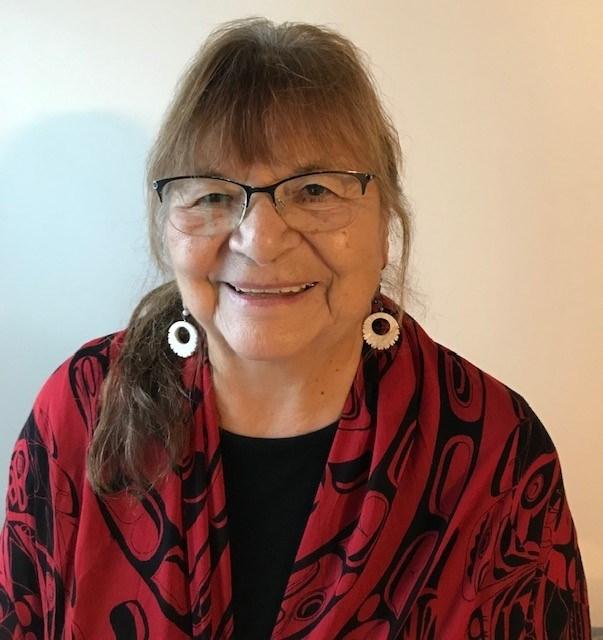
“

Elder Jean Wasegijig
Good Medicine Woman”
If you would like to set an appointment to meet with Elder Jean either in person at DHCC or virtually, please email resident.wellness@ubc.ca

The UBC PGME
POST GRADUATE MEDICAL EDUCATION | RESIDENT WELLNESS OFFICE resident.wellness@ubc.ca
DISTRIBUTED SITE: PRINCE GEORGE
Prince George is a vibrant and bustling town located in the interior of British Columbia, Canada. It serves as the largest city in Northern British Columbia and is often referred to as the “Northern Capital” of the province. With its rich history, natural beauty, and thriving community, Prince George offers a unique experience to Residents and visitors alike.
THINGS TO DO
Nestled amidst the breathtaking landscapes of the Cariboo and Rocky Mountain ranges, Prince George is known for its stunning wilderness and outdoor recreational opportunities.
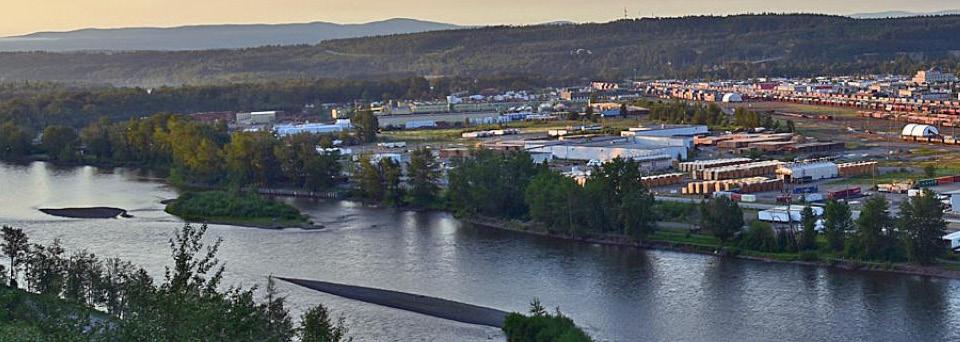
Outdoor Adventures
The town is surrounded by vast forests, pristine lakes, and picturesque mountains, making it an ideal destination for nature lovers and outdoor enthusiasts. From hiking and mountain biking in the summer to skiing and snowboarding in the winter, the region’s diverse terrain provides endless adventures throughout the year.
Hiking: Prince George boasts numerous scenic trails suitable for all levels of hikers. Exploration Place, Forests for the World, and Cranbrook Hill Greenway are popular locations to enjoy nature and stunning views.
Mountain Biking: The city has a variety of mountain biking trails catering to different skill levels. The Otway Nordic Ski Centre and Pidherny Trails are great choices for biking enthusiasts.
Fishing: With numerous lakes and rivers in the surrounding area, fishing is a popular outdoor activity. You can try your luck at fishing spots like the Fraser River, West Lake Provincial Park, and Purden Lake.
Winter Sports: During the winter months, outdoor activities shift to snow-related sports. Enjoy downhill skiing and snowboarding at Purden Ski Village or cross-country skiing at the Otway Nordic Ski Centre.
Food And Drink
There are many restaurants to explore in Prince George. It’s always a good idea to check recent reviews or ask locals for updated recommendations to get the most accurate information about current restaurant offerings and quality.
• The Copper Pig BBQ House: Known for its delicious barbecue dishes and friendly atmosphere, this restaurant offers a variety of smoked meats, burgers, and comfort food options.
25
• North 54: This upscale restaurant features a menu inspired by Italian and Mediterranean flavors. It offers a refined dining experience with dishes like handmade pasta, seafood, and steaks.
• CrossRoads Brewing & Distillery: If you’re looking for craft beer and spirits, CrossRoads is a great choice. They have an on-site brewery and distillery, offering a variety of handcrafted beers, cocktails, and a food menu featuring tasty pub fare.
• Ohh Chocolat Café: This cozy café is known for its delicious chocolates and gourmet desserts. They also serve a variety of specialty coffees, teas, and light breakfast and lunch options.
Cultural and Arts
Aside from its natural wonders, Prince George is also a hub of cultural and artistic activities. The city boasts numerous art galleries, theaters, and museums, showcasing the rich heritage and artistic talents of the region.

Two Rivers Gallery: This contemporary art gallery is a prominent hub for visual arts in Prince George. It showcases local, regional, and national artists through rotating exhibitions, providing a platform for innovative and thought-provoking artwork. The gallery also offers educational programs
Theatre and Performing Arts: Prince George is home to several theaters and performing arts organizations. The Prince George Playhouse and Theatre NorthWest present a variety of theatrical productions, including dramas, comedies, and musicals.
Aboriginal Culture: Prince George is located within the traditional territories of the Lheidli T’enneh First Nation and other Indigenous communities. The city embraces and celebrates Aboriginal culture through events such as the Lheidli T’enneh Memorial Park Powwow, where visitors can experience Indigenous music, dance, art, and cuisine.
Community Events: Prince George hosts several community events that celebrate arts and culture. The Prince George Folkfest, Canada Day celebrations, and the Downtown Winterfest are just a few examples of festivals that bring people together to enjoy live performances, cultural displays, and artisan markets.
Overall, Prince George’s city fosters a supportive environment for artists, encourages community engagement, and provides opportunities for Residents and visitors to experience diverse forms of artistic expression.
To find out more about Prince George, visit their town website at: www.princegeorge.ca
Image courtesy of princegeorge.ca
26

The Pulse newsletter is always looking for submissions from residents like you! If you have article ideas, announcements, or other interesting insights about life as a resident doctor, please contact us at: info@residentdoctorsbc.ca Physician Health Program 1-800-663-6729 VCH EFAP 1-833-533-1577 HSSBC Benefits & Payroll 1-866-875-5306 PU
IMPORTANT PHONE NUMBERS
SE


























 By Austin Lam, UBC Psychiatry Research Track PGY-2
By Austin Lam, UBC Psychiatry Research Track PGY-2






















